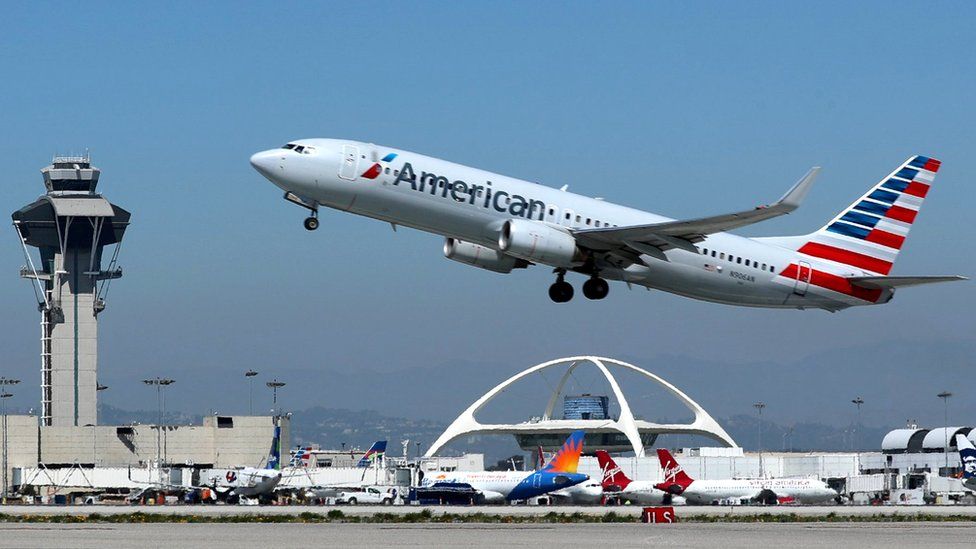Airline stocks plunge as the aviation sector struggles

High
travel demand during the Covid-19 pandemic, which lasted more than two years,
has partly benefited airlines, with Delta, United, and American recently
expecting a rebound to profitability. Travelers have been tolerating rising
tickets, according to airline officials.
“If
you’ve flown on a plane lately, planes are very full and plane tickets are very
expensive,” Federal Reserve Chairman Jerome Powell.
The
airline industry has been hampered by a lack of supplies. Summer flight
schedules have been reduced by Delta, JetBlue Airways, Spirit Airlines, Alaska
Airlines, and others to allow for ordinary interruptions and, in certain cases,
to address labor shortages.
According
to persons familiar with the ongoing
situation, airline CEOs will meet digitally with
Transportation Secretary Pete Buttigieg Thursday Evening to examine how
prepared they are following an increase in delayed and cancelled flights this
year.
Investors
are weighing the prospects of a recession and also how proactive the Federal
Reserve will be in tamping down the steepest upsurge prices ever since early
1980s as the aviation sector's recent loss surpasses a broad market
collapse.
On
Thursday, American Airlines' stock fell 8.6%, reaching its lowest level since
November 2020. Southwest Airlines' stock dropped 6% to almost a
two-year low. Delta Air Lines and United Airlines both lost more than 7%
of their value, while the NYSE Arca Airline Index, which monitors 18 airlines,
fell more than 8%.
“The
market is just reacting to anything that’s cyclical, anything that’s considered
sensitive to the economy,” said Savanthi Syth, airline equity analyst at
Raymond James. “As frustrating as it is to watch the stocks ... we are going
into this recession like we’ve never gone into one before.”
In
an attempt to keep inflation under control, the Federal Reserve raised interest
rates by three-quarters of a percentage point on Wednesday, the largest rise
since 1994.
Domestic
airfare declined for the first time this year on Wednesday, according to
fare-tracking website Hopper, with round-trip tickets costing $390, down from
$410 in mid-May. This, it added, was in accordance with normal seasonal
patterns.
Demand
following the summer travel rush, when business travel normally kicks up, will
be critical for airlines in the future. Business owners concerned about a
recession and, in certain circumstances, announcing layoffs, may reduce travel
plans.
According
to FlightAware, well over 1,000 flights inside, into, or out of the United
States were delayed as of Sunday morning, and over 700 flights had
been canceled. On Sunday, the greatest flight delays and
cancellations occurred at Hartsfield-Jackson Atlanta International
Airport, John F. Kennedy International Airport in New York City, and Chicago O'Hare
International Airport.
Several
airline companies already have canceled flights for the summer period due to
personnel shortages, particularly a pilot deficit, according to a report from
the Dallas Morning News. Southwest Airlines, for example, has eliminated roughly
20,000 summer flights.


Be the first to comment!
You must login to comment